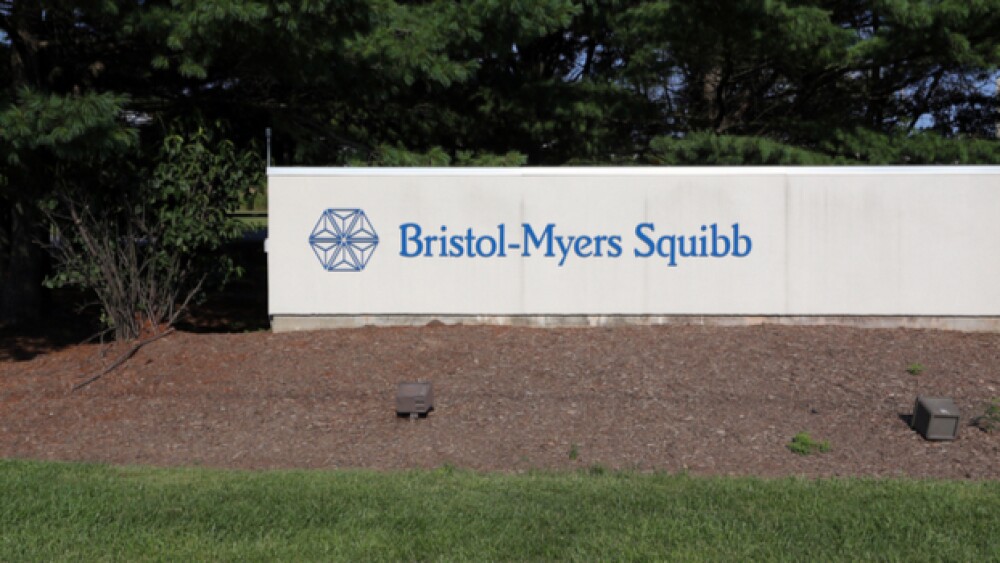Although it was probably not in serious jeopardy, Bristol-Myers Squibb’s shareholders voted today to approve the acquisition of Celgene Corporation for about $74 billion.
Katherine Welles / Shutterstock.com
Although it was probably not in serious jeopardy, Bristol-Myers Squibb’s shareholders voted today to approve the acquisition of Celgene for about $74 billion.
Bristol-Myers Squibb announced its bid to acquire Celgene on January 3, 2019. However, the deal hit a snag. One of its biggest shareholders, Wellington Management Company LLP, objected to the acquisition. Wellington owns about an 8 percent stake in Bristol-Myers. Another BMS shareholder, Starboard Value, also opposed the deal. Starboard has about a 1-percent ownership share. Starboard, in an open letter, called it “poorly conceived and ill-advised.” Another group, Dodge & Cox, who opposed the deal, has a 2-percent stake.
What followed was something of an information campaign on the part of Bristol-Myers Squibb and Celgene, making investors and shareholders aware of the rationale behind the deal and the advantages of the merged companies. They included:
- Growing a stronger commercial presence in the company’s key disease franchises led by “high performing commercial teams.”
- Launching “exciting new medicines,” including six in the near future.
- “Advance a significantly enhanced early-stage pipeline; and”
- Integrate a range of research-and-discovery modalities that will “further strengthen our pipeline.”
Bristol-Myers also pointed out that it expects to have $45 billion in expected free cash flow generation during the three years after the deal closes. It plans to maintain strong investment grade credit ratings while continuing with its current dividend policy for both Bristol-Myers Squibb and Celgene shareholders. It also assured investors the company will have “significant financial flexibility” to take advantage and exploit its enhanced late- and early-stage pipeline.
Wellington argued that BMS should be active in business development and M&A but doesn’t believe the Celgene deal “is an attractive path towards accomplishing this goal.”
Wellington said BMS shareholders would have to accept too much risk. They also disagreed with the terms offered to Celgene stockholders. Wellington also argued that the deal was likely to be more difficult than BMS claims. Thirdly, the investment firm argued that “alternative paths to create value” for BMS shareholders could be more attractive, although they never really cited what those alternative paths might be.
Another BMS shareholder, Starboard Value, also opposed the deal. In addition to its statement that the deal was, “poorly conceived and ill-advised,” they also expressed concern about Celgene’s expiring patents and that BMS had not accounted for projected Revlimid revenue declines of 90 percent by 2026 as the result of patent cliffs.
Another group, Dodge & Cox, who opposed the deal, has a 2-percent stake.
Clearly, however, most shareholders felt it was a good deal, with 70% voting in favor of the deal, and about 98% of votes cast.
“On behalf of the Celgene Board of Directors, I would like to thank our stockholders for their overwhelming support of this transaction,” stated Mark Alles, Celgene’s chairman and chief executive officer. “The combined company will create a leading focused specialty biopharma company well positioned to address the needs of patients with cancer, inflammatory and immunologic disease and cardiovascular diseases through high-value innovative medicines and leading scientific capabilities. We are confident that together we can generate long-term, sustainable value for stockholders and superior solutions and choices for patients.”
The deal is expected to close in the third quarter of this year.
Likely the biggest challenge for the merged companies is the patent cliff for Celgene’s blockbuster Revlimid for multiple myeloma. The first generic is expected in March 2022. But Celgene has an interesting pipeline, with three drugs, fedratinib, ozanimod, and luspatercept, already submitted to the U.S. Food and Drug Administration (FDA). If everything goes according to plan, fedratinib will be approved for myelofibrosis in September, and ozanimod will be approved for multiple sclerosis and luspatercept for myelodysplastic syndrome and beta thalassemia in early 2020. The company also has two CAR-T immuno-oncology compounds, bb2121 and liso-cel in late-stage trials.





